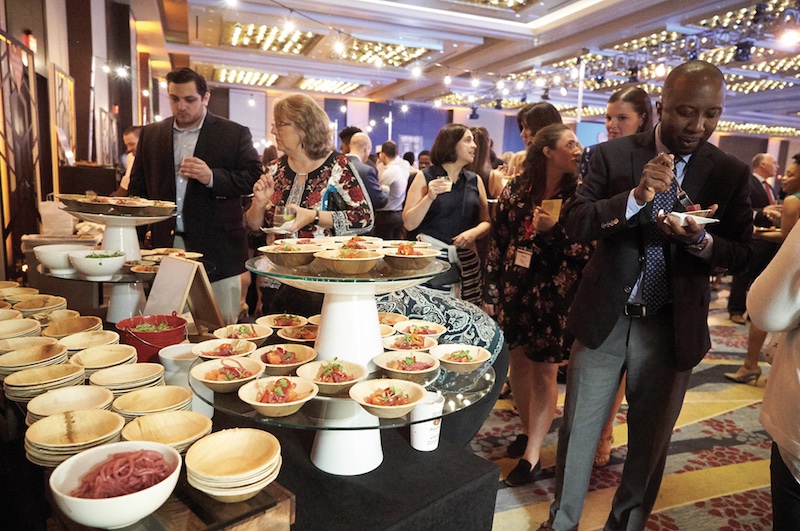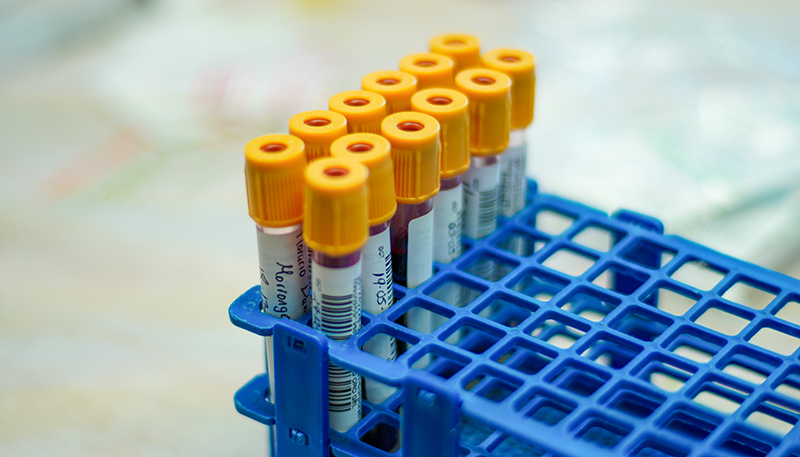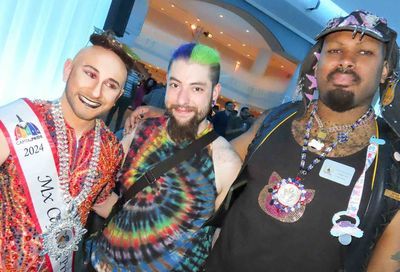Battling the Blood Ban
GW's LGBT law-school group holds blood drive to highlight FDA ban
Blood may be thicker than water. But a ban on blood donations may be thicker still.
Members of George Washington University’s Lambda Law, the LGBT law school student group, hosted an on-campus blood drive for the Red Cross Nov. 14 – even though most of the group’s male members are prohibited from donating blood, according to guidelines set by the U.S. Food and Drug Administration.
The ban dates back to 1977 and the advent of the AIDS epidemic in the United States, when men who had sex with men were deferred for life from donating blood because, as a group, men who have sex with men (MSM) were at increased risk for HIV, hepatitis B and other infections that can easily be transmitted by blood transfusion.
According to statistics from the American Red Cross posted on the FDA’s website, MSM are 60 times more likely than the general population to have HIV, 800 times more likely than first-time blood donors, and 8,000 times more likely than repeat blood donors.
However, opponents say the ban, in its current form, is discriminatory, pointing out that many of the higher-risk factors for HIV and other diseases are linked to behavior, such as engaging in unprotected sex, having multiple partners and using intravenous drugs, not identity.
Michael Porcello, a third-year law student and member of Lambda Law who helped organize the blood drive, said he became interested in the ban two years ago, and had talked with someone at the Red Cross who told him that other groups had held ”informative” blood drives to raise awareness about certain issues, such as the need for more Hispanics to donate.
In response, Porcello decided to hold a similar blood drive to call attention to the ban, and enlist donors’ support to repeal and replace it with a more behaviorally based screening process. Now in its third year, the annual blood drive attracts about 30 to 40 donors. According to organizers, 24 units of blood had been donated by the close of the drive at 4 p.m., and the group collected 85 signatures for its petition.
”Every year, we hear people say they didn’t know about the ban,” Porcello says. ”Our first year, it was a huge number of people who said they’d never heard of it, they thought it was discriminatory, and they didn’t understand the reasoning behind it.”
Porcello said that Lambda Law’s drive has been so successful that other schools have asked for guidance on holding similar blood drives. Most recently, says Porcello, American University used Lambda’s materials to hold their own blood drive to raise awareness of the ban. Lambda has registered a domain name and hopes to soon build a website that could serve as a resource to help other schools or organizations follow its lead.
”I think it’s great that Lambda Law is doing something to highlight something that negatively affects people in this community, but in a positive way,” says Mary Moore, a third-year law student and straight ally who volunteered to help with the blood drive. ”They can still get their message out while helping the Red Cross.”
Erica Kagan, a donor-recruitment representative for Northwest D.C. for the American Red Cross, echoes sentiments similar to Moore’s, saying she was grateful for Porcello’s willingness to help them collect blood, even though he disagrees with the ban.
”I really appreciate what Michael’s doing, trying to get others involved, broadening the reach of this drive,” she says. ”Michael understands that we still need to get blood. It’s not the hospital patients’ fault that the ruling is in place. We have to cover the FDA regulations or we’ll get shut down.”
Kagan says the Red Cross holds, on average, about 25 blood drives a day in the D.C. area. She emphasizes that, especially in light of D.C.’s transient population, lower rates of donation in African-American and Hispanic communities, and its urban environment, the organization often struggles to secure enough blood.
Mike Baisey, communications manager for the American Red Cross, forwarded a joint statement issued by the organization in coalition with AABB, an organization that focuses on transfusion standards, and America’s Blood Centers, issued in 2010 that encouraged the use of ”rational, scientifically-based deferral periods that are applied fairly and consistently among blood donors who engage in similar risk activities” and recommended a change in FDA deferral criteria for donors identifying as MSM.
In the statement, the groups stated they believed ”the current lifetime deferral for men who have had sex with other men is scientifically unwarranted” and recommended the FDA amend the deferral period to a 12-month deferral, which would match the deferral period for others engaging in high-risk sexual behavior, such as having sex with an individual with HIV or viral hepatitis. However, the FDA did not accept their recommendations and has continued to carry out the current ban on self-identified MSM.
Despite the ban, some students see themselves taking part in a long-term fight to change the FDA policies. And that fight starts with educating the public about the ban.
”I think that this is something that is crucial to raise awareness about, because the ban does have this impact on our community,” says Brynne Madway, co-president of Lambda Law. ”It’s key to raising awareness of an issue that people can organize around that does prevent people from helping to save a life, and I think it’s just another sign of things that need to change.”
Support Metro Weekly’s Journalism
These are challenging times for news organizations. And yet it’s crucial we stay active and provide vital resources and information to both our local readers and the world. So won’t you please take a moment and consider supporting Metro Weekly with a membership? For as little as $5 a month, you can help ensure Metro Weekly magazine and MetroWeekly.com remain free, viable resources as we provide the best, most diverse, culturally-resonant LGBTQ coverage in both the D.C. region and around the world. Memberships come with exclusive perks and discounts, your own personal digital delivery of each week’s magazine (and an archive), access to our Member's Lounge when it launches this fall, and exclusive members-only items like Metro Weekly Membership Mugs and Tote Bags! Check out all our membership levels here and please join us today!
























